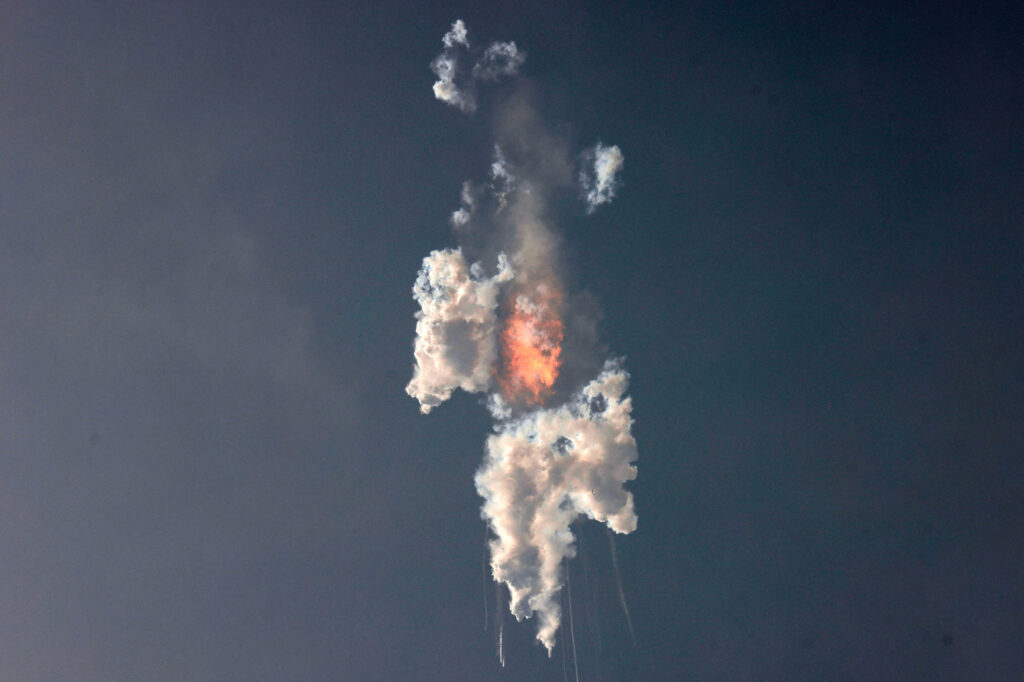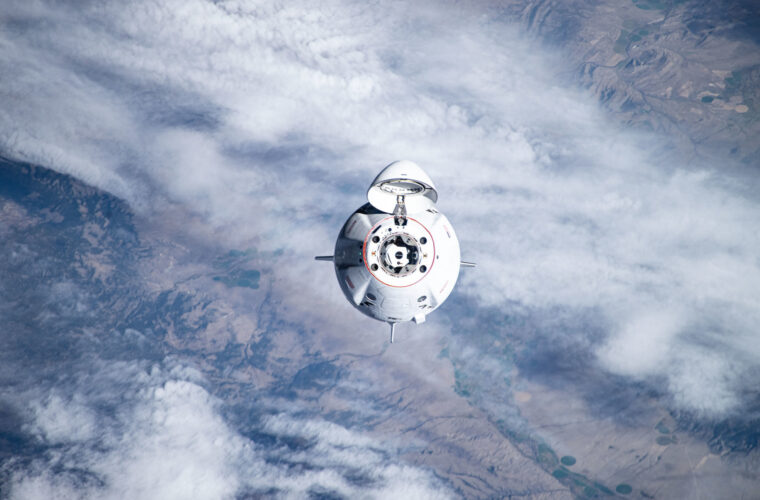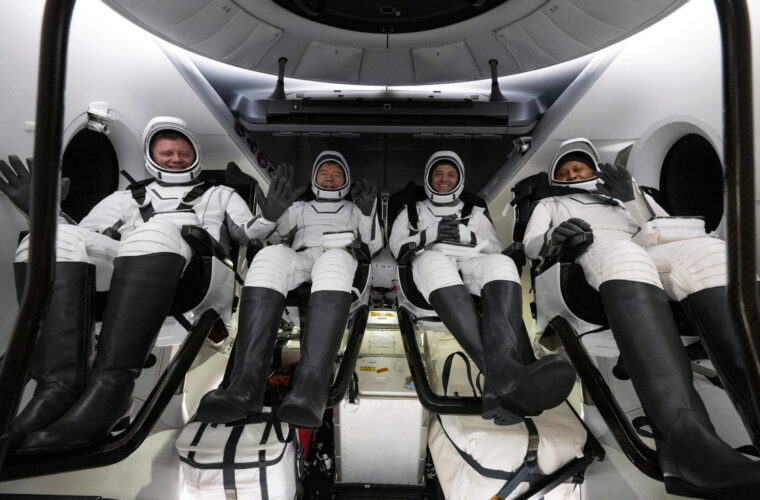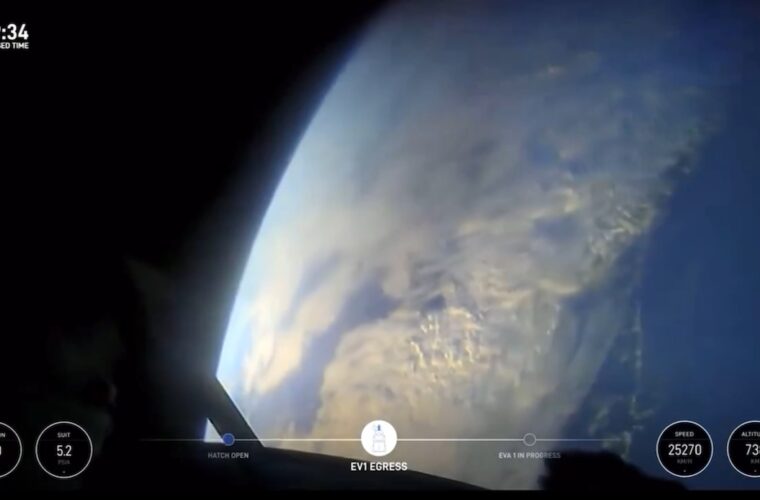By Joey Roulette
WASHINGTON (Reuters) – The U.S. Federal Aviation Administration wrapped up a technical investigation into SpaceX’s April test launch of its giant Starship rocket, saying in a Friday statement that the company must implement dozens of corrective measures before flying the vehicle again.
The April 20 launch of SpaceX’s Starship Super Heavy rocket from Texas pulverized its launchpad upon successful liftoff and ascended 25 miles (40.23 km) before exploding roughly four minutes into its flight, as it was attempting a crucial demonstration to reach space for the first time.
The FAA, which regulates launch site safety and oversees company-led mishap investigations, closed its review on Thursday of SpaceX’s investigation into the launch mishap, according to an FAA safety official’s letter sent to SpaceX that day.
The letter and the FAA statement on Friday cited “multiple root causes” of the Starship failure and 63 corrective actions to take before launching the rocket again. It summarized some of those tasks as hardware changes to prevent leaks and fires and reinforcing the rocket’s launchpad to prevent a storm of kicked up debris and sand.
“The closure of the mishap investigation does not signal an immediate resumption of Starship launches at Boca Chica,” the agency said, referring to SpaceX’s sprawling Starship launch site in south Texas.
The FAA probe’s closure puts SpaceX one step closer to getting Starship in space for the first time – a major, long-sought testing milestone before the company can use the reusable rocket for commercial satellite missions and human landings on the moon for NASA.
It was unclear how many of the corrective actions SpaceX has already implemented, which will impact Starship’s next launch timeline.
Later on Friday, SpaceX’s CEO and founder Elon Musk asked the FAA “what are the 63 corrective actions?” in a post responding to the agency’s statement on X, the social media site previously known as Twitter that Musk also owns.
In line with FAA regulations, Musk’s space company led the Starship investigation and largely created the list of 63 corrective actions for the FAA to approve. The agency requires SpaceX complete those actions before it can obtain a new Starship launch license.
The FAA did not publicly release the mishap report detailing the corrective actions.
In the weeks after the test launch, Musk said an internal fire during Starship’s ascent damaged its engines and computers, causing it to uncontrollably stray from its planned trajectory, and that a destruct command was triggered some 40 seconds later than it should have to blow up the rocket.
That automated destruct command is one of multiple “safety critical systems” that SpaceX must upgrade before attempting another launch, the FAA official wrote in the letter.
In a Friday blog post on its website, SpaceX said it has made numerous corrections and upgrades to Starship and its launchpad, including an “enhanced and requalified” flight termination system and an expanded fire suppression apparatus onboard.
Though the probe is done, SpaceX must obtain a modified FAA license to launch, which entails a sometimes-lengthy review of the Starship’s flight trajectory, accident probabilities and other factors affecting nearby public safety.

“Starship is ready to launch, awaiting FAA license approval,” Musk wrote in a Tuesday post on X.
Debris and giant chunks of concrete blasted into the air by Starship’s powerful liftoff sparked fresh environmental concerns over SpaceX’s Boca Chica launch site, which in May became the center of a lawsuit from environmental groups accusing the FAA of inadequately reviewing the site’s impact to nearby nature preserves.
SpaceX has vowed to install a large metal plate on the launchpad for its protection and to mitigate the debris field from Starship’s liftoff, which left a gaping crater in the ground beneath its launch mount.
Calling that destruction a “pad foundation failure,” SpaceX said in the blog post it reinforced the Starship pad and added a flame deflector to withstand the rocket’s fiery forces.



